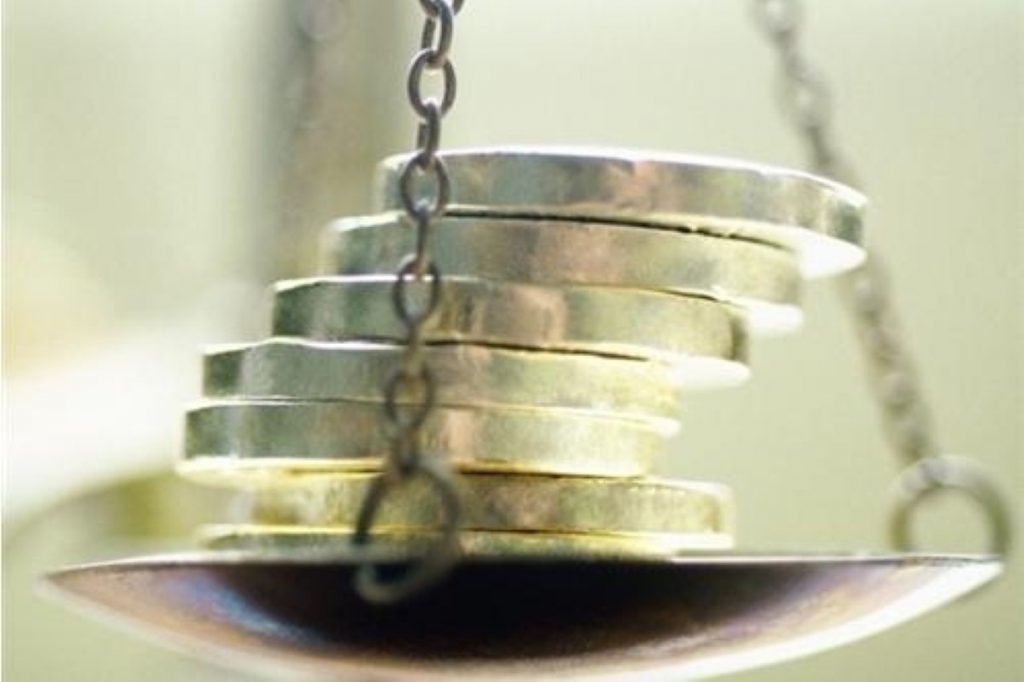Big drop in growth forecast as independent figures published
The first independent figures from the Office of Budget Responsibility have downgraded Britain’s growth forecast for 2011.
Alistair Darling’s pre-election Budget had predicted the economy would grow by three per cent to 3.5% next year, but the OBR said GDP growth of just 2.6% was more likely.
Today’s figures are the first from the new organisation, which was established by the coalition government in a bid to depoliticise the forecasting numbers on which Treasury spending assumptions are based.


“As we always suspected and as confirmed by this report the downturn did more damage to the economy than Labour admitted,” deputy prime minister Nick Clegg said in a speech after the announcement.
The Liberal Democrat leader accused Labour ministers of “playing games with the numbers” as he sought to justify spending cuts as a progressive measure.
Mr Darling had warned earlier that the coalition’s approach to public spending risked damaging economic growth.
“If you take away money from the economy you run the risks of lower growth still. If you don’t have a strategy for growth you will not get borrowing down,” he said.
Mr Clegg responded by saying: “Labour’s attempt to use today’s OBR report as an excuse for inaction would be a monumental mistake.”
It predicts GDP growth will be just 1.3% in 2010, before rising to 2.6% in 2011 and 2.8% in 2012 and 2013. Growth will then slip back to 2.6% in 2013 as demographic changes reduce the workforce’s potential to increase.
The OBR predicts inflation will stay above three per cent in the near term before falling below the two per cent target next year.
The total number of people out of work will increase from 7.6% this year to 8.1% next year, before slowly declining to reach 6.3% in 2014.
Its figures follow criticism from the Conservatives that the Treasury’s figures had been excessively optimistic. The downgrade of nearly one per cent on 2011’s GDP figures will be trumpeted by Tories as a vindication for their move.
“We do have to think of this as a completely new forecast,” OBR head Sir Alan Budd pressed.
“We started with a clean slate. We’ve put our projections in and we’ve reached a different conclusion.”
Mr Darling suggested growth forecasts had been lowered partly because of the deteriorating economic situation in the eurozone.
And he pointed out that borrowing figures were lower than forecast before warning against the coalition’s economic approach.
Mr Osborne will deliver his emergency Budget next week on June 22nd. The OBR’s figures make his task much harder, as they have a direct impact on the tax revenues he can expect to receive.
The assessment of the current structural deficit is broadly unchanged, however. The OBR said it would fall from £156.1 billion to £71 billion in 2014/15.
“These improvements are driven by the expected recovery of the economy over this period and by the policy measures announced by the previous government to reduce the deficit,” it said in its first report.
Outside groups like the British Retail Consortium welcomed the figures as being more in line with their own analyses.
The BRC’s director general Stephen Robertson said: “They better reflect reality and show that the government must follow through on even bigger spending cuts than announced so far.”
Matthew Sinclair, research director at the TaxPayers’ Alliance, was in a more gloomy mood, however.
“It was always madness for the Treasury to be forming policy on the basis of a trampoline back to growth, when so many of the mistakes that led to the problems we are facing today were the result of politicians and bankers being too optimistic,” he commented.
“Taxpayers will be concerned that the politicians’ failure to properly face up to the scale of spending cuts necessary will mean bigger tax bills, possibly even a disastrous VAT hike which would hit the poor twice as hard as the rich.”
Mr Sinclair warned tax rises would undermine prospects for growth, but an increase in VAT is seen as virtually inevitable by most analysts.

